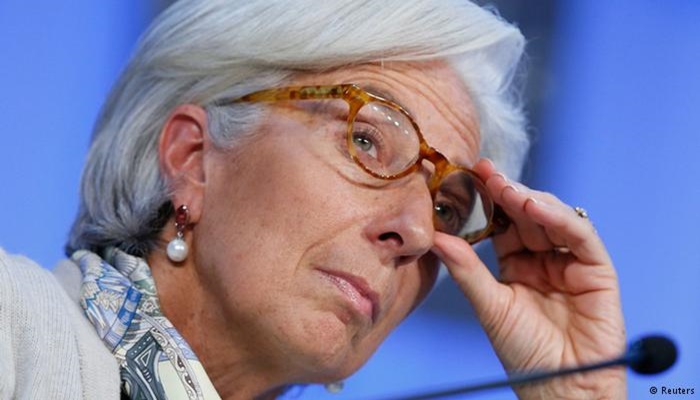
The International Monetary Fund (IMF) said on Wednesday that Nigeria is expected to emerge from recession this year, but stressed that threats to recovery remained elevated adding that the country’s economy will not grow enough to reduce unemployment and poverty.
The Fund projected Nigeria’s economy will grow 0.8 per cent this year, it said in a report, adding that various indicators suggest an uptick in economic activity in the second quarter.
According to IMF, low growth and exposure to the oil sector increased non-performing loans at banks to 15 percent in March from six per cent in 2015. They rose to eight per cent excluding four under-capitalised banks.
“Concerns about delays in policy implementation, a reversal of favorable external market conditions, possible shortfalls in agricultural and oil production, additional fiscal pressures, continued market segmentation in a foreign exchange market that remains dependent on central bank interventions, and banking system fragilities represent the main risks to the outlook,” the IMF said.
“Acting on an appropriate and coherent set of policies to enhance an economic recovery remains urgent,” it said after a team visited Nigeria last month to review reform implementation.
The World Bank institution said the government saw significant revenue shortfalls in the first half of the year, with interest-payments remaining as high as 40 per cent at end of June. It projected interest payments would rise further under current policies.
Nigeria expects a shortfall of $7.5 billion for its 2017 budget. It expects to rise around half that in foreign loans including, from the World Bank and from international debt markets.
The Fund said Nigeria’s new window for investors to trade the currency, the naira, at market rates has allowed portfolio inflows and helped boost foreign reserves, which has contributed to reducing the premium on the black market rate.
“In the near term, a stronger push for front-loaded fiscal consolidation through a sustainable increase in non-oil revenues would be needed to create space for infrastructure spending, social protection, and private sector credit,” it said.
“This should be simultaneously accompanied by a monetary policy that avoids direct financing of the government and is kept sufficiently tight, a unified and market-based exchange rate, and rapid implementation of structural reforms.” It counselled.
Pursuing these policies would help reduce vulnerabilities and create an environment for an economy led by the private sector, the IMF said.
It would be recalled that Nigerian entered into recession in 2016 as low crude prices and oil production affected government revenues negatively, caused dollar shortages and crippled its economy.






